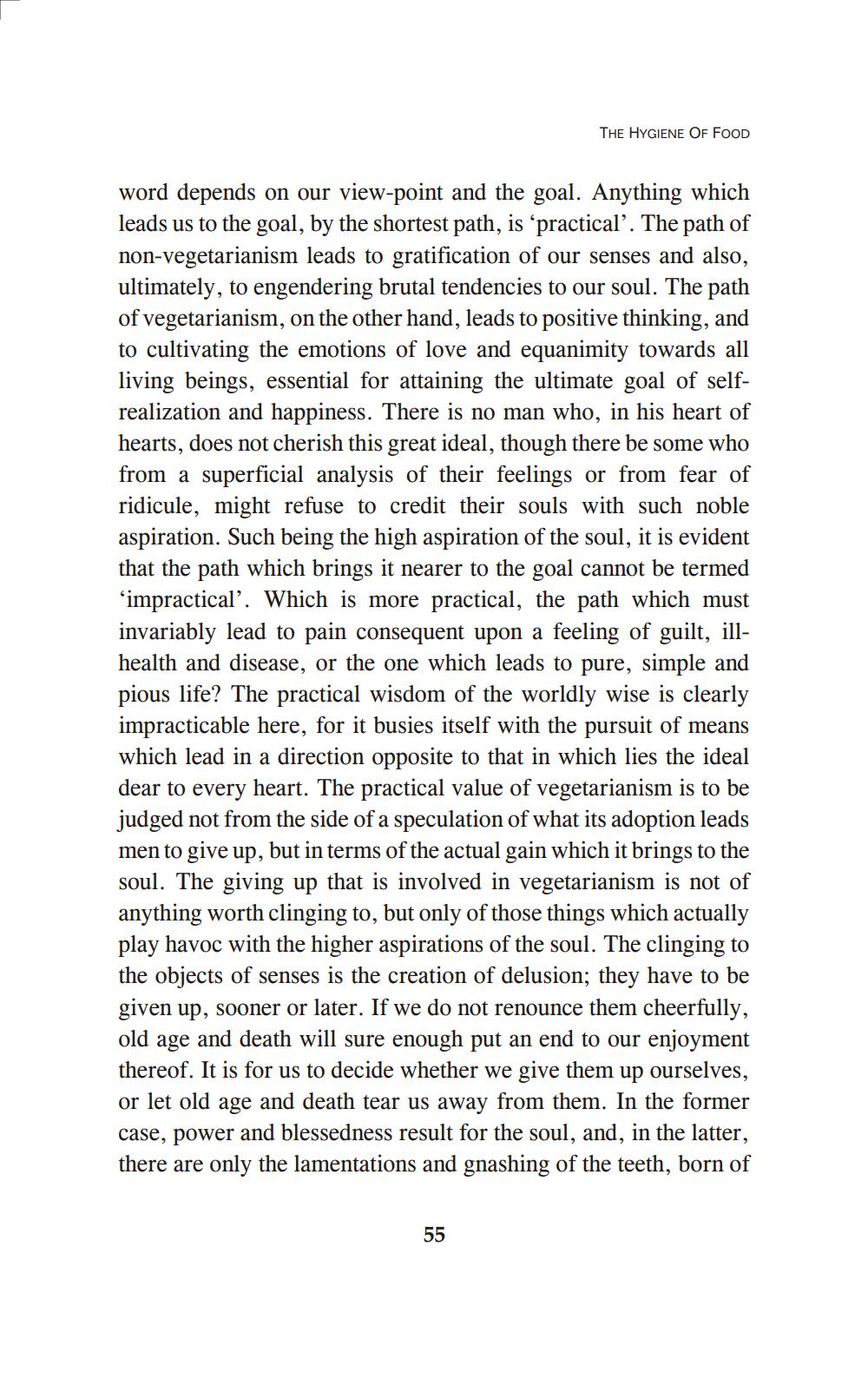________________
THE HYGIENE OF FOOD
word depends on our view-point and the goal. Anything which leads us to the goal, by the shortest path, is ‘practical. The path of non-vegetarianism leads to gratification of our senses and also, ultimately, to engendering brutal tendencies to our soul. The path of vegetarianism, on the other hand, leads to positive thinking, and to cultivating the emotions of love and equanimity towards all living beings, essential for attaining the ultimate goal of selfrealization and happiness. There is no man who, in his heart of hearts, does not cherish this great ideal, though there be some who from a superficial analysis of their feelings or from fear of ridicule, might refuse to credit their souls with such noble aspiration. Such being the high aspiration of the soul, it is evident that the path which brings it nearer to the goal cannot be termed ‘impractical. Which is more practical, the path which must invariably lead to pain consequent upon a feeling of guilt, illhealth and disease, or the one which leads to pure, simple and pious life? The practical wisdom of the worldly wise is clearly impracticable here, for it busies itself with the pursuit of means which lead in a direction opposite to that in which lies the ideal dear to every heart. The practical value of vegetarianism is to be judged not from the side of a speculation of what its adoption leads men to give up, but in terms of the actual gain which it brings to the soul. The giving up that is involved in vegetarianism is not of anything worth clinging to, but only of those things which actually play havoc with the higher aspirations of the soul. The clinging to the objects of senses is the creation of delusion; they have to be given up, sooner or later. If we do not renounce them cheerfully, old age and death will sure enough put an end to our enjoyment thereof. It is for us to decide whether we give them up ourselves, or let old age and death tear us away from them. In the former case, power and blessedness result for the soul, and, in the latter, there are only the lamentations and gnashing of the teeth, born of
55




